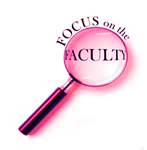Yanagida was born and raised in Tokyo, but has lived in four states in the U.S. Yanagida had a different career before she began teaching, but has now taught Japanese language courses for almost 20 years.
As I sit down in her office, noticing some of the Japanese art she has on her desk and walls, she asks me a very Japanese question: "Church-san, would you like some green tea?" She calls me Church-san since that is how Japanese professors address their students.
"I'm fine, thank you, Yanagida-sensei," I reply with the appropriate title attached to her name.
On the shelves are dozens of books, all related to teaching. Many are just different Japanese-English dictionaries she has acquired over the years.
Yanagida's students will gladly recommend her to those who are interested in Japanese, and Yanagida's teaching just perpetuates the cycle. She has written and drawn up hundreds of flashcards and activities to accompany the textbook. She gladly helps all who ask and will spend as much time as her schedule allows making sure her students understand.
Former student Young-Mi Feldsott recalls how helpful Yanagida was for her class.
"Yanagida-sensei always goes out of her way to take care of her students," says Feldsott, "and she genuinely wants everyone to learn not just the language but the culture."
After finishing graduate school in the States, Yanagida returned to Japan for a short while. Working at a linguistics institute, she helped to develop new teaching materials for Japanese people.
In the late 1980s, Yanagida received recommendation from a professor she knew for a job at Middlebury College in Vermont, where she would go on to teach for three years. She moved on to teach at Duke University for six years before coming to Charleston in 1998.
Yanagida's passion for teaching took her back to Japan during summer months and long vacations, that is, until she met her husband. Not long into her career here at the College, she married an American man and had a daughter (whose name spelled in Japanese uses a type of complex character called kanji meaning 'jade.')
Having settled down here in Charleston, Yanagida's trips back to Japan are less frequent. Luckily, in this day and age there are various means of contacting places that used to take weeks to hear from. Yanagida regularly calls and e-mails her family in Japan and also reads Japanese newspapers online to keep up with current affairs. Her computer at home is set up to type in and display text in Japanese. She also subscribes to a satellite television service that offers Japanese programming.
At the end of every semester Yanagida brings in a few different recordings she has made from various Japanese shows. The shows range from sumo wrestling tournaments to fashion shows to music award shows, all of which offer great insight into Japanese culture.
Along with the television shows, Yanagida treats her students with authentic Japanese snacks and candies.
In North Charleston there is an Asian market where Yanagida likes to shop for her favorite Japanese foods, just another subtle way she holds on to her heritage while being so far away from home.
Japanese food is a very important part of her culture and Yanagida finds it nice being able to make her favorite foods and pass some of her culture to her daughter. One thing that is still very difficult for her to find outside of Japan is clothing.
"San Francisco and Washington, D.C., have the broadest markets for clothing," Yanagida explains. Standing at just over five feet tall, American clothing is typically too big, so shopping for clothes is usually done in Japan and occasionally in select U.S. cities.
Yanagida teaches Japanese classes, usually wears Japanese-made clothing, eats Japanese food, reads Japanese newspapers and watches Japanese television. Everywhere she goes there are traces of Japan. Many people struggle with homesickness but Yanagida takes pride in carrying her heritage with her.
###
|

